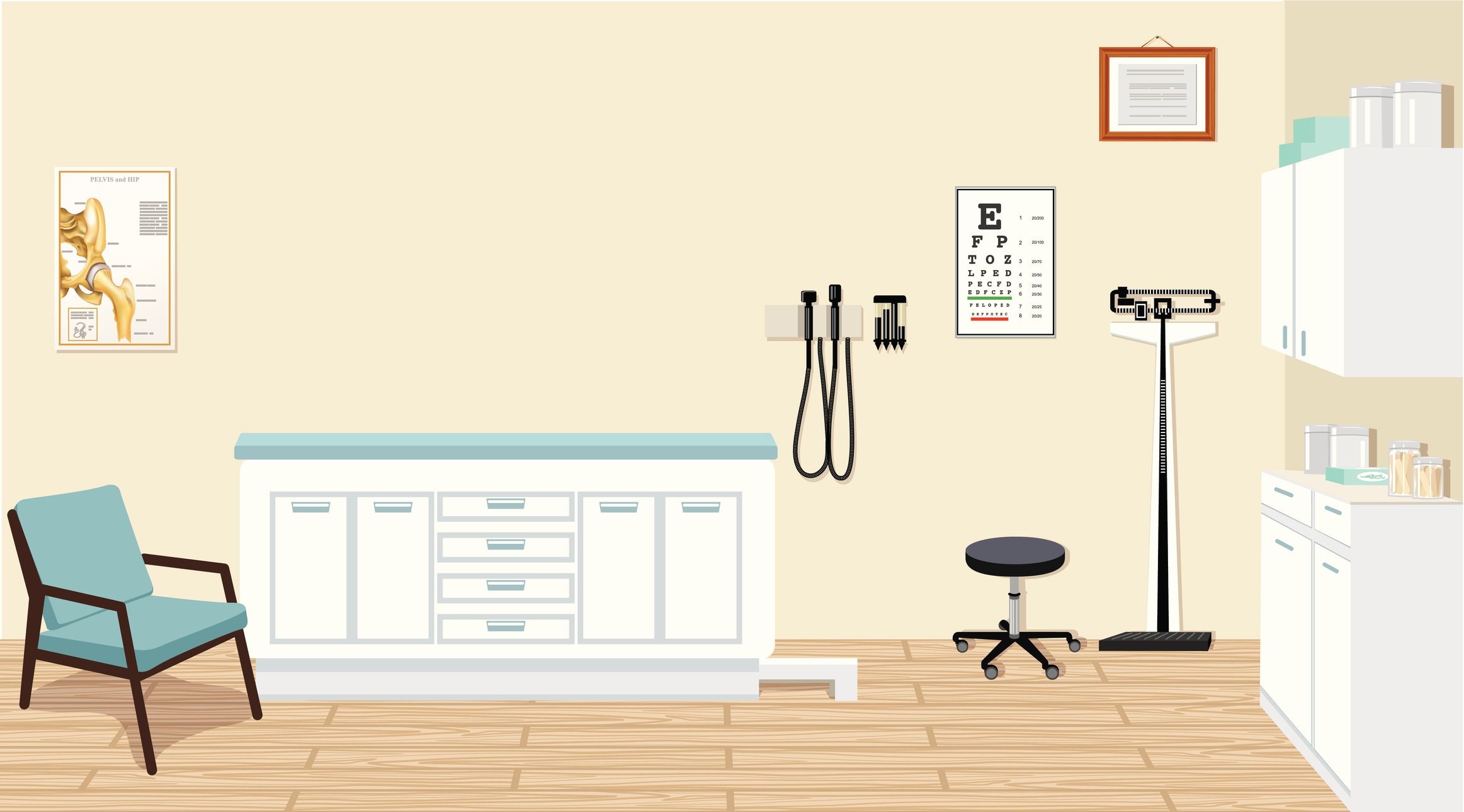Your equipment planning will have a huge impact on the efficiency and efficacy of your medical examination rooms. You want to ensure you have everything you need at your fingertips to make seeing patients easier, and to also allow for quicker assessments in order to see as many patients as possible, while still providing optimal care.
Here is a list of medical equipment must-haves for your examination rooms:
-
Exam Table: An adjustable exam table, ideally with cabinets and storage beneath, is an absolute “must have” and will provide a place to examine patients, while also providing much needed storage without taking up extra floor space. There are many new laws in place that address the ADA (Americans with Disabilities Act). A power exam table that goes as low as 17” should be considered. Not only will it be ADA-friendly, but it could also increase the workflow of an office, allowing more patients with mobility disabilities to be seen in a day.
-
Integrated Diagnostic System: An integrated diagnostic system provides you with everything you'd require for a basic examination. You will be able to perform checks using an ophthalmoscope, otoscope, sphygmomanometer, and an electronic thermometer.
Having a wall-mounted diagnostic system will keep everything you need for the medical exam at arms reach, as well as keeping everything charged so you never have to worry about having your equipment fail while you are mid-exam. If wall space is limited you can also consider a wall-mounted transformer with heads that can be switched up as required based on the patient’s needs.
If you cannot accommodate an integrated system you will require, at least, a modular vital signs monitor as well as otoscopes, ophthalmoscopes and varied speculae.
-
Desk Charger: If you are looking at a smaller sized exam room you can add some desk chargers to your equipment plan. These are small and can be placed on exam room desks, counters and other smaller surfaces. They are adaptable to be used with the most high demand items such as otoscopes and will provide a dependable and endless energy supply for the various pieces of equipment needed. You can also look for sets that provide interchangeable handles that can be paired with various tool heads as required such as ophthalmoscopes and otoscopes.
-
Spot Vitals: These are all in one modular vital signs instruments and will be the easiest and most efficient tool in the exam rooms to capture blood pressure, pulse rate, temperature, and SpO2. They can also be mobile so that one can be ordered and used for multiple exam rooms.
-
Exam Lights: An exam light is a must for many medical assessments. There are a number of choices from fiber optics to halogen lights and from mobile units to portable headlights.
-
ECG Devices: There are many ECG devices to choose from, and the size and services provided at your facility will play a role in what models will work the best for you. Newer models will allow you to generate and manage patient data ideal for use with EHR systems.
-
Spirometer: The latest in spirometer technology can provide you with the tools you need to assess pulmonary issues such as obstructive restrictive disorders. Many models are child friendly to encourage them to follow the required steps for the best results.
-
AED: Automated External Defibrillators (AEDs) are a must for any medical location. Ready at a moment's notice, the latest models of AEDs will allow you to improve outcomes for emergency situations and is an obvious must for your equipment planning.
-
Anoscope: If you want to have all tools available, an anoscope will allow you to rule out many issues without calling for further tests elsewhere. It will expedite exams in many cases, allowing you to make an accurate diagnosis or call for further detailed tests as required. Although some healthcare providers might not include this as a “must have” in equipment planning, it is a definite plus to have included.
-
Computer Workstations: If you're looking for ergonomic, adaptable, and mobile solutions to enhance your caregivers' workflows, computer workstations will surely meet the demands of your care. With the advent of EHR systems, it is imperative to have a cart or stand to accommodate computers to record and access patient health information.
-
Exam Stool: An adjustable stool on wheels will make examinations easier and offer seating during conversations with your patients and their family members.
-
Guest Seating: Guest seating for family members will make it easier to keep people comfortable as well as keep them out of the way when conducting exams.
-
Storage Cabinetry: There are a number of storage options to accommodate all of the supplies required for procedures as well as to contain diagnostic test materials, cleaning products, PPE, etc.
-
Sinks and Counters: Having a sink and counter area will provide counter space to label blood work, prepare tests, and also encourage proper hand washing procedures. You will also have additional storage space in cabinets below for optimum use of space.
-
Scale: Along with a vital signs monitor, a scale is a must. You can have one in a central area or one in each individual exam room. There are even some power exam tables that have scales incorporated into the table that should be considered, depending on your patient mix. If you see any pediatric patients, a pediatric scale is needed also.
-
EHR Readiness: Even if you do not have an EHR (Electronic Health Record), your office needs to be EHR ready. All of the electronic equipment needs to be able to talk to an EHR system.
-
Miscellaneous items: There are many other items that might be required for your office set-up. These include IV poles, mayo stands, glove dispensers, sharps containers, trash cans, and refrigerators.
This list of "must haves" will complete your equipment needs and make your exam rooms ready for a wide diversity of patients and their particular medical needs. If you'd like to learn more information about these products, or you're interested in receiving a quote, reach out to your local Account Manager at CME Corp or email websc@cmecorp.com.
About CME: CME Corp is the nation’s premier source for healthcare equipment, turnkey logistics, and biomedical services, representing 2 million+ products from more than 2,000 manufacturers.
With two corporate offices and 35+ service centers, our mission is to help healthcare facilities nationwide reduce the cost of the equipment they purchase, make their equipment specification, delivery, installation, and maintenance processes more efficient, and help them seamlessly launch, renovate and expand on schedule.



